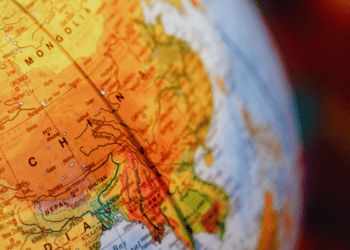The end of South African statesman Nelson Mandela’s long walk to freedom this week reminds us all of how much that country has changed in our lifetime.
Young people today know only the post-apartheid country of which Mandela became the first president in 1994. Despite the occasional stumble, it has proven to be the most successful in Africa, a multi-racial society characterized by the rule of law and a genuine democracy, with human rights protected within a constitutional framework Canadians contributed mightily to conceiving.
But South Africa before the fall of apartheid was such a different place that those with no experience of it find it hard to imagine. I don’t. I spent three months there in 1982 while the battle to preserve white minority rule still raged.
Three incidents stand out in my mind as exemplifying the South Africa of that era.
In the first, I was offered a job teaching at the University of Cape Town, an almost exclusively white institution. The job in question would have been at a centre dedicated to dialogue to resolve the country’s interracial conflicts. Before I could be hired, however, some clearly uncomfortable university officials said I would have to be interviewed by the “government’s representative” on campus.
I duly showed up at a small office on campus and met an older Afrikaner gentleman who proceeded to interrogate me about my views and associations. It slowly dawned on me (and later was confirmed by campus contacts) that this man was from the state security services and his job was to vet me to see if my political views would be acceptable to the government.
In a pattern I was to see repeated over and over again in white South African society, everyone knew what was going on but no one was willing to call it by its name. People were clearly ashamed about what was happening to them and their institutions, but they could make it bearable by never acknowledging directly what was happening.
This denial was the dominant theme of the second incident which so marked my visit. This time I was attending a dinner party of young white South Africans in the Observatory suburb of Cape Town.
In the middle of dinner the doorbell rang. Our hostess went to the door and came back quite agitated. A “coloured” street person was there asking for a handout (“coloureds” were one of the four race categories under apartheid and were not primarily mixed-race but rather predominantly the descendants of slaves brought largely from Dutch colonies in what is now Indonesia).
Unfortunately the man at the door did not consider what he was given sufficient, and so he spent the next 20 minutes or so ringing the doorbell continuously. Every man around the table had served in the South African armed forces to defeat black efforts to achieve majority rule. Their society had invested hugely in the physical force necessary to subjugate the non-white majority. Yet these people were so riddled with unacknowledged guilt that they could not summon up the intestinal fortitude to chase away an aggressive vagrant who was spoiling their dinner. This Banquo’s ghost of racism clearly made his living from such a slow twisting of the moral blade in the gut of the average white South African.
After watching my dinner companions sit staring in silence at their plates for over a quarter of an hour while the bell rang and rang, I concluded that this would go on indefinitely if no one put a stop to it. Consequently I went to the door and looked the man in the eye, clearly a novel experience for him. I politely but firmly did what our hosts were incapable of doing, which was to tell him that if he did not go away and stop annoying us, I would call the police. I gave him some more money and politely closed the door. The flabbergasted visitor duly went peacefully on his way.
The final incident happened while staying on a small farm outside Johannesburg. I was made acutely uncomfortable by being waited on by black servants and I resolved as a small gesture to start washing my own dishes and otherwise doing my own household chores as I would have expected to do at home. To my consternation I caused great offence among the servants who felt I was rejecting their work and so I was forced to fall in with the behaviour expected on all sides of the race divide.
It was this society, riddled with hatreds and anxieties and imprisoned by centuries of prejudice and mistrust that Nelson Mandela, through pure force of moral character, led peacefully into modernity and away from race war. The world will forever own him a debt of gratitude and admiration. Uhambe kakhule, Nelson.
Brian Lee Crowley (twitter.com/brianleecrowley) is the Managing Director of the Macdonald-Laurier Institute, an independent non-partisan public policy think tank in Ottawa: www.macdonaldlaurier.ca.




